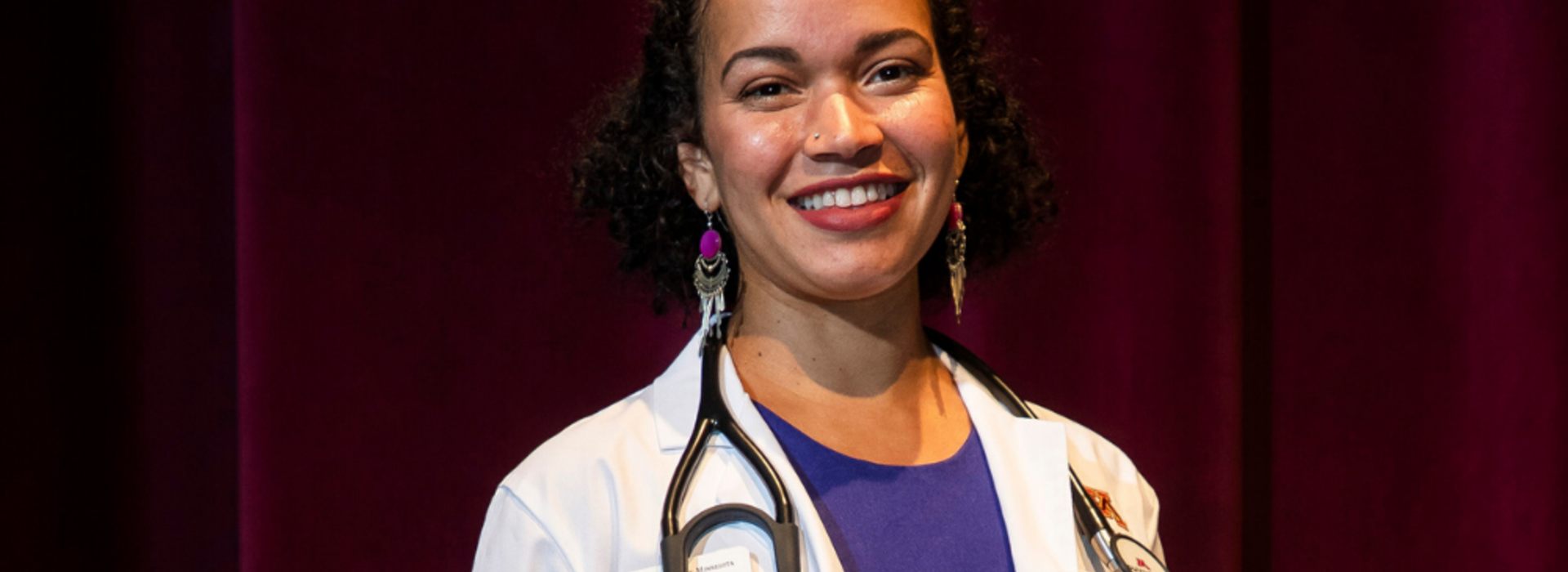
Duluth Medical Student Earns Alumna-Honoring Scholarship for Non-traditional Students
It didn’t take five years in psychiatry to figure out that a future in medicine was her calling. Tegan Carr acknowledges that within a couple months of working in the field, she was meant to pursue a medical degree with a background in psychiatry. However, it would take half a decade to start her educational journey at the University of Minnesota Medical School, Duluth Campus.
“It took me four years just to fulfill the pre-medical requirements, but here I am. It dawned on me that medicine was it,” Carr said.
As a first-year medical student, Carr earned the support of the Nancy I. English M.D. (‘92) Memorial Scholarship, which honors a non-traditional female who has worked in another career before applying to medical school or has an interest in family medicine and a demonstrated record of dedication to community service. Carr recognizes the layers of support that are not only about financial security. There are a few intangible elements that create a lasting impression on students like Carr who receive scholarships.
“The students who benefit the most from scholarships are often not accustomed to conceptualizing or trusting the principles of investment and reward on the scale of medical school,” Carr said. “There is a hypothetical future that is honestly terrifying. Scholarships chip away at that debt and have a strong symbolic impact, challenging the sense that there is some inherent risk.”
At the same time, scholarship recipients also have a sense of trust from donors, especially when the financial support has specific criteria for students to fulfill. “It’s an affirmation that I am where I should be and that someone else wants me here so much so that they have literally invested in my status as a medical student,” Carr said.
While there are numerous scholarship platforms for students to apply for and receive, Carr was interested in this specific memorial scholarship because it aligned with similar experiences she had faced as a nontraditional student.
“Dr. Nancy English,” Carr said, “gave up a career that moved and rewarded her in order to go to medical school. She did so at a time when women were few and far between among medical students. Her journey was unique in that it required sacrifice and resilience far beyond what medical school already demands. Her experience was as atypical then as mine is now. It resonates with and encourages me.”
When looking back at what led to medical school, Carr had not intended to pursue medicine. In fact, it wasn’t until after she graduated in 2014 having achieved several undergraduate degrees all within the liberal arts that she put her skills, knowledge, experience and career dreams together.
“I was prepared to apply to PhD programs in clinical psychology, but a few months before graduation, I started a new job at the Minneapolis VA in the psychiatry clinics,” Carr said. “Mental health is where it’s at for me. I’ve been in the field in various capacities for the past 10 years. Mental health is very relevant in family practice, and I do hope to do some work in the transition and application of mental health-oriented practices in primary care settings.”
To learn more about the donors who established this scholarship and how to apply, please contact Elizabeth Simonson, Director of Development for the University of Minnesota Medical School, Duluth Campus, at esimonso@umn.edu.